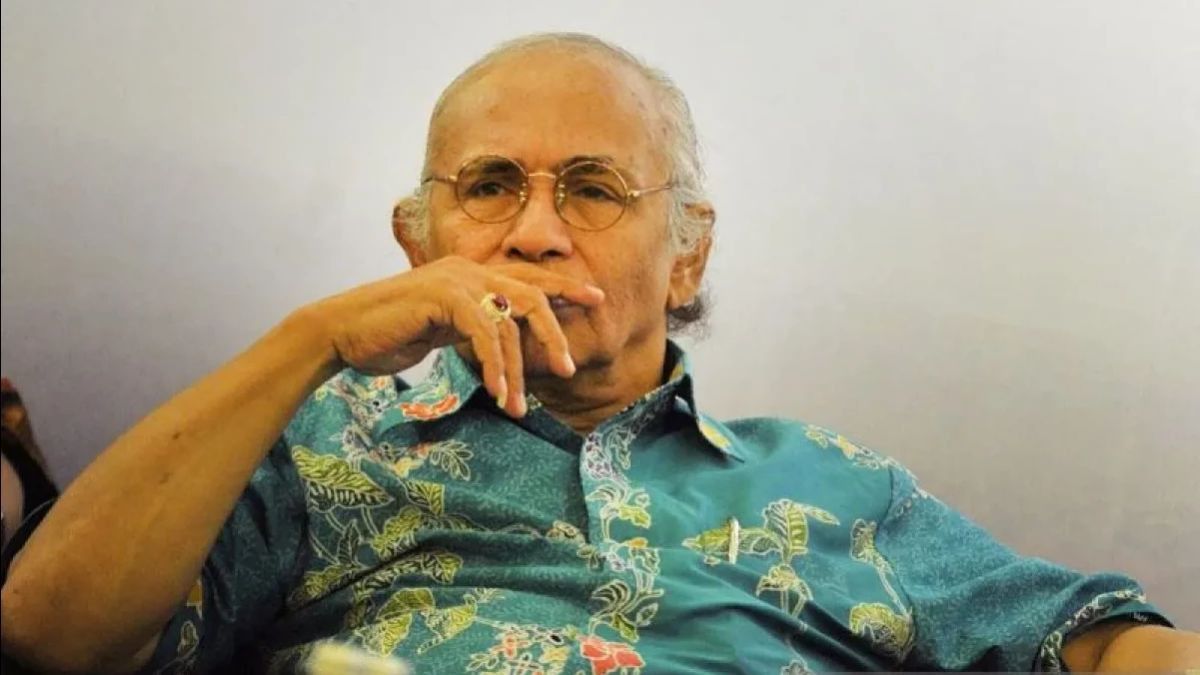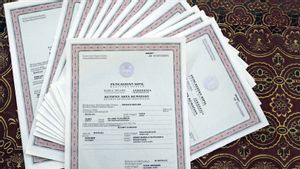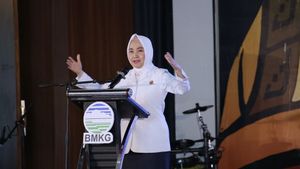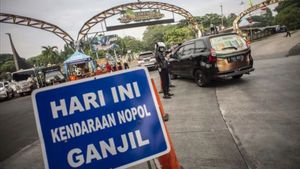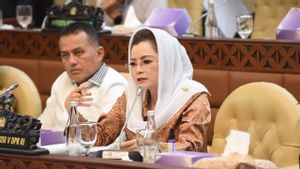YOGYAKARTA - Profile of Salim Said is interesting to watch considering that he is a national press and film figure. The figure of Salim Said is also known as an academic, scholar, and was once the ambassador of the Republic of Indonesia to the Czech Republic.
Prof Salim Said closed his body on Saturday night 18 May at Cipto Mangunkusumo Hospital (RSCM) Central Jakarta. His body was buried at the Tanah Kusir TPU, Jakarta. Salim Said breathed his last at the age of 80 after surviving his illness.
The departure of Salim Said brings sad news to Indonesia considering the many contributions it has made to the world of press and cinema in the country. So what is Salim Said's profile like and his important track record to know?
Salim Haji Said was born in Pare-Pare, South Sulawesi, on November 10, 1943. When he was young, he had studied at the Indonesian National Theater Academy. He helped form a Small and productive Theater to write essays and criticisms about theaters and films.
Before leaving for Jakarta, Salim Said first migrated to Solo, Central Java, when he was 15 years old. Until finally he decided to move and have a career in Jakarta. Despite having a theater and film background, Salim Said actually started his career as a journalist. He became one of the founders of Tempo magazine and was once a editor.
While serving as a Tempo journalist, Salim Said also continued his studies at the Department of Sociology, University of Indonesia (UI) with a study period until 1979. After that, he continued his doctoral program in the field of Political Science at Ohio State University, Columbus, United States.
Salim Said made a dissertation highlighting the political role of the Armed Forces of the Republic of Indonesia (ABRI) during the 1945-1949 revolution. It was this well-known scientific work that led him to a doctorate in 1985, as well as being an observer of Indonesian military politics.
The name Salim Said became increasingly known in the 1960s when his writing began to fill the cultural sheets of various magazines. The works of Salim Said decorate magazines such as Horison, Indonesian Mimbar, and Budaja Djaya.
In addition to working in the press and magazine world, Salim Said was later known as a film activist. After returning from America, he returned to being active in the arts, especially in films. In 1989, he was chosen to be Chairman of the Jakarta Arts Council (DKJ).
His existence did not stop there, Salim Said also became a member of the Indonesian film organization, the National Film Council (DFN). In addition, Salim has also filled the position of Head of Foreign Relations at the Permanent Committee (Pantap) of the Indonesian Film Festival (FFI).
Salim Said has repeatedly served as a FFI judge and wrote for domestic and foreign mass media, including Suara Pembaruan (Indonesia), East West (Honolulu, United States), and Cinemaya (India). He is also actively involved in a series of overseas activities to review various international film festivals.
Salim Said also held the position of Ambassador of the Republic of Indonesia to the Czech Republic during the era of President Susilo Bambang Yudhoyono's leadership. He sat on this important position in the span of 2006-2010.
In addition, Salim Said is also a Professor of Political Science, which also actively publishes books with political, film and military themes. Several of the books Salim Said, including the White Screen Pantulan: Indonesian Film in Criticism and Comments (1991), the Indonesian Military in Politics (2001), and the Fall and Fall of Dwifunction: Development of Indonesian Military Political Thoughts, 1958-2000 (2002).
That's Salim Said's profile of an important figure in the world of press and cinema in Indonesia. As long as he was alive, Salim Said contributed a lot to producing other important writings, knowledge, and roles. Also read the late Salim Said was buried at the Tanah Kusir TPU.
Stay up to date with the latest domestic and other overseas news on VOI. We present the latest and updated information nationally and internationally.
The English, Chinese, Japanese, Arabic, and French versions are automatically generated by the AI. So there may still be inaccuracies in translating, please always see Indonesian as our main language. (system supported by DigitalSiber.id)
